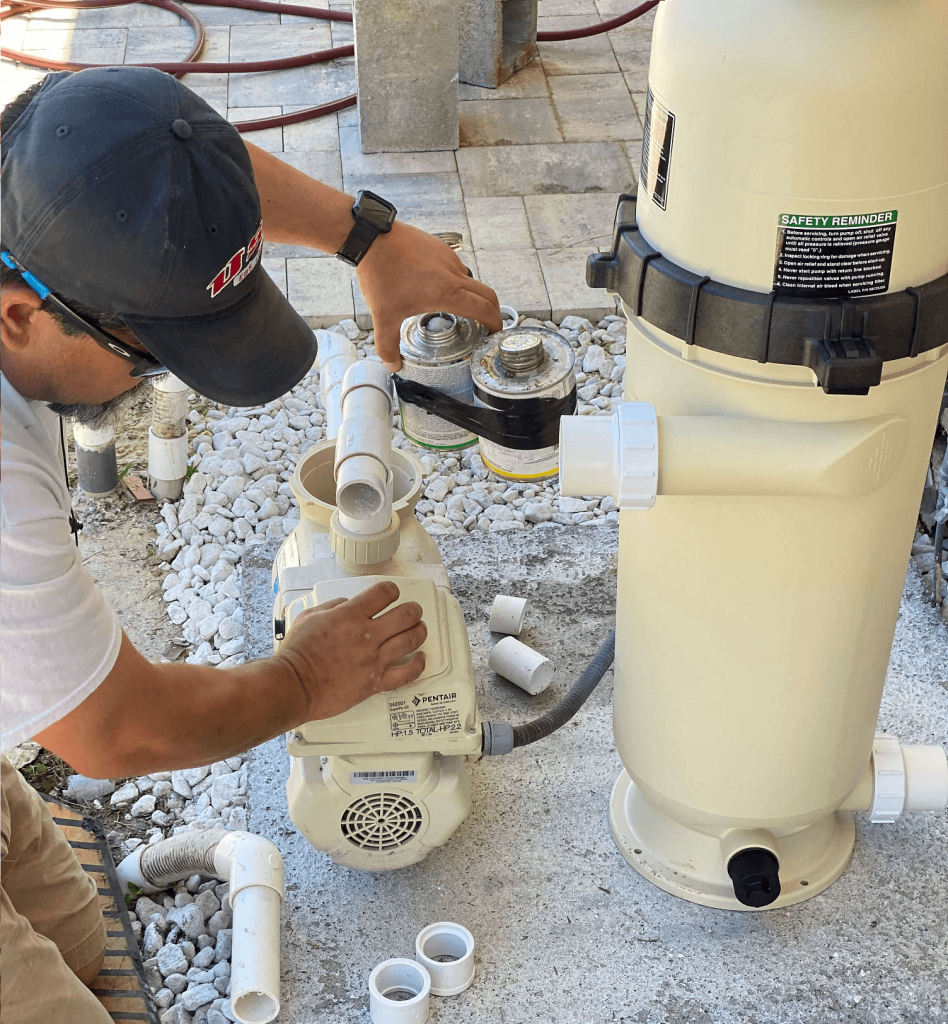Comprehensive Water Treatment Solutions: Safeguarding Your Family's Health and Wellness
Recognizing the Key Components of Effective Water Purification Systems

Importance of Water Filtration Systems
Water purification systems play a vital function in guaranteeing access to safe and tidy alcohol consumption water by efficiently eliminating pollutants and contaminations. These systems are important in addressing the expanding issues over water quality and the possible health and wellness risks connected with taking in infected water. By using various purification mechanisms such as reverse osmosis, turned on carbon, and UV sterilization, water purification systems can effectively remove dangerous substances like germs, viruses, hefty steels, and chemicals from the water system.
Moreover, water purification systems help to enhance the preference and odor of water by removing chlorine, sediments, and other toxins that can affect its high quality. Water Treatment. This enhancement in water high quality not just makes it more palatable yet also motivates people to drink an appropriate amount of water daily, promoting much better hydration and total health
Types of Filtration Parts

Physical filters are created to literally stress out impurities from the water. These filters can be made from products like ceramic, carbon, or also sand, and they function by trapping particles larger than the filter's pores as water travels through.
Chemical filters make use of various chemical processes to remove pollutants from the water. Instances consist of turned on carbon filters, which adsorb impurities, and turn around osmosis membranes, which utilize pressure to separate pollutants from the water.
Biological filters use living microorganisms like microorganisms or algae to damage down raw material and toxins in the water. These filters are frequently used in wastewater treatment plants or natural water purification systems.
Comprehending the different kinds of filtering elements is vital for picking one of the most appropriate water filtering system for particular purification needs.
Function of Sediment Filters
Sediment filters play an essential duty in water purification systems by efficiently capturing strong bits suspended in the water. These filters are usually the very first line of defense in a filtering system, eliminating larger fragments such as sand, silt, dust, and rust before the water relocates with finer filtering stages. By capturing these sediments, the filters prevent them from getting to downstream parts, thus extending the life-span and effectiveness of the entire system.
The function of debris filters is crucial in maintaining water top quality and shielding sensitive equipment from damages triggered by debris. Furthermore, by eliminating noticeable particles, sediment filters boost the clarity and preference of the water. On a regular basis replacing or cleansing debris filters is important to make sure optimal efficiency. Disregarding this upkeep can result in obstructing, decreased water circulation, and jeopardized purification effectiveness. On the whole, sediment filters are essential parts that contribute dramatically to the effectiveness of water purification systems.
Duty of Activated Carbon Filters
Playing an essential function in water filtering systems, triggered carbon filters are important in getting rid of contaminations and impurities from the water supply. As water passes via the filter, the turned on carbon brings in and holds onto the contaminations, making certain that the water that comes out on the various other side is cleaner and more secure for intake.
Triggered carbon filters are highly reliable at boosting the taste and odor of water by minimizing chemicals that can impact its quality. Due to their convenience and dependability, activated carbon filters are a vital element in ensuring that water is cleansed to the highest criteria before getting to consumers.
Understanding Reverse Osmosis Equipments
Reverse osmosis systems are sophisticated water purification systems that utilize an innovative process to remove pollutants and contaminations from drinking water. sites These systems function by applying stress to the water, compeling it with a semi-permeable membrane layer. This membrane layer acts as a barrier, allowing just distilled water particles to pass through, while blocking bigger particles such as minerals, chemicals, and various other contaminations. As a result, the water that appears on the other side is substantially cleaner and safer for usage.
One trick advantage of reverse osmosis systems is their ability to eliminate a vast range of contaminants, including hefty steels, dissolved bacteria, solids, and viruses. This makes them very reliable in improving the general high quality and safety and security of alcohol consumption water. Additionally, reverse osmosis systems are relatively low-maintenance and can be installed under the sink or in a main purification system, giving convenient access to tidy water throughout the family. Overall, comprehending exactly how reverse osmosis systems work can help people make informed choices regarding their water filtering demands.
Final Thought
Finally, reliable water purification systems are important for making certain risk-free and clean drinking water. The key parts of these systems consist of debris filters, triggered carbon filters, and reverse osmosis systems. By comprehending the function and role of each element, individuals can make informed choices when choosing a water purification system. It is vital to focus on the high quality of water in order to promote overall wellness and health.
Water filtration systems play an important role in guaranteeing accessibility to tidy and safe drinking water by effectively eliminating contaminants and contaminations. By utilizing numerous filtering systems such as reverse osmosis, activated carbon, and UV sanitation, water filtering systems can efficiently get rid of harmful compounds like bacteria, viruses, hefty you can check here metals, and chemicals from the water supply.
Debris filters play a vital role in water filtering systems by effectively catching solid fragments suspended in the water (Pump repairs & installation).Playing a critical role in water purification systems, activated carbon filters are important in getting rid of impurities and pollutants from the water supply.Reverse osmosis systems are advanced water filtering systems that utilize a see this here sophisticated process to eliminate impurities and impurities from drinking water